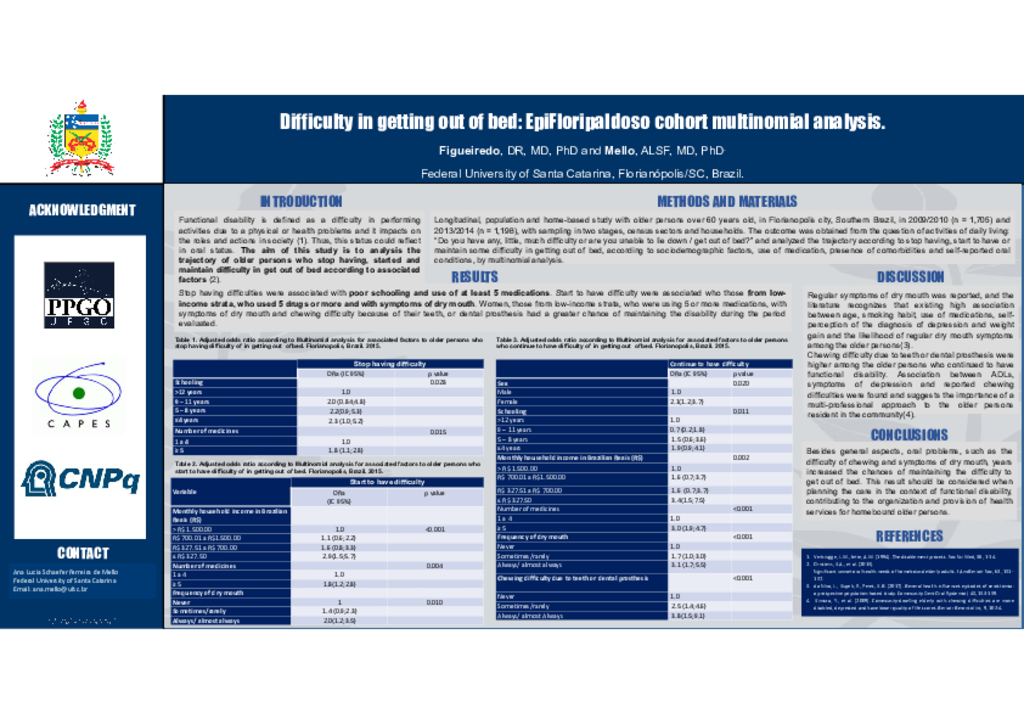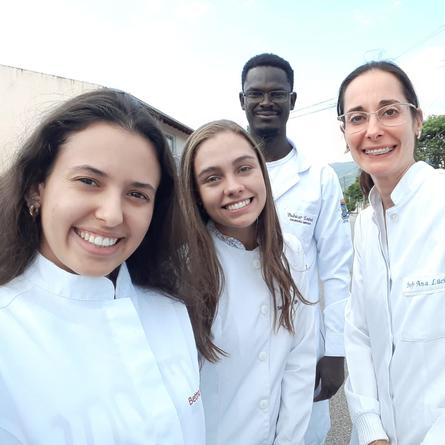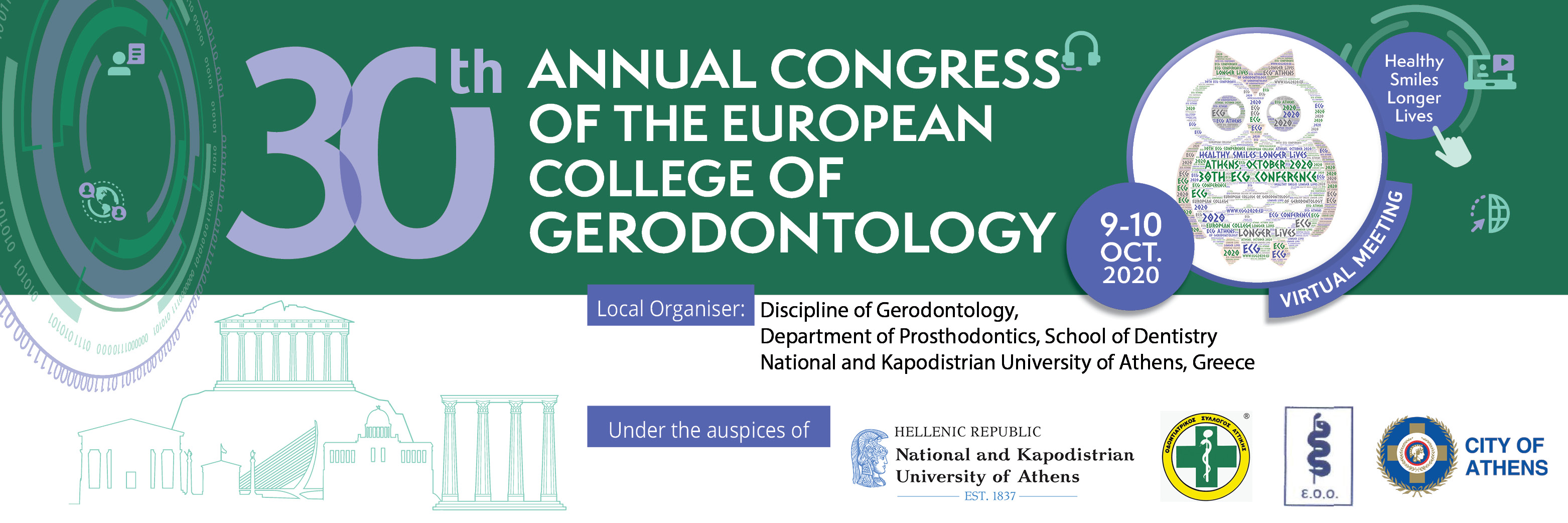Objective: To describe the oral health condition of homebound elderly people, registered by the primary health care public services, in Florianópolis city, Southern Brazil. Method: Cross-sectional, home-based, epidemiological study with a random sample. Data collection was performed through a closed questionnaire, answered by the elders or the caregiver, and clinical examination, and included sociodemographic information, number of teeth and tooth root remains, presence of caries lesions, dental mobility, visible dental plaque, mucosal lesions, and self-perception of dry mouth, difficulty in eating hard foods and assistance with oral hygiene. Results: The final sample was composed by 123 elders, from 61 to 107 years of age; 62.6% women; 60% confined for up to 5 years; with daily caregiver in 87% and 89.4% considered fragile. Regarding the presence of teeth, 56.1% were edentulous and 70% had up to 6 teeth. Tooth root remains was observed in 12.8%, untreated caries lesions in 25.2%, visible plaque in 69.9%, dental mobility in 57.7% and mucosal lesions in 8.9% of the elderly. Discomfort with dry mouth was reported by 50.4% and 56% were unable to eat hard foods when compared to the last 6 months; 45.5% needed assistance with daily oral hygiene. Conclusion: The homebound elders studied have poor oral health conditions due to the presence of oral problems that require intervention. These study points out the need for dental homecare within the scope of public health services at the primary health care level.
- 40 views




